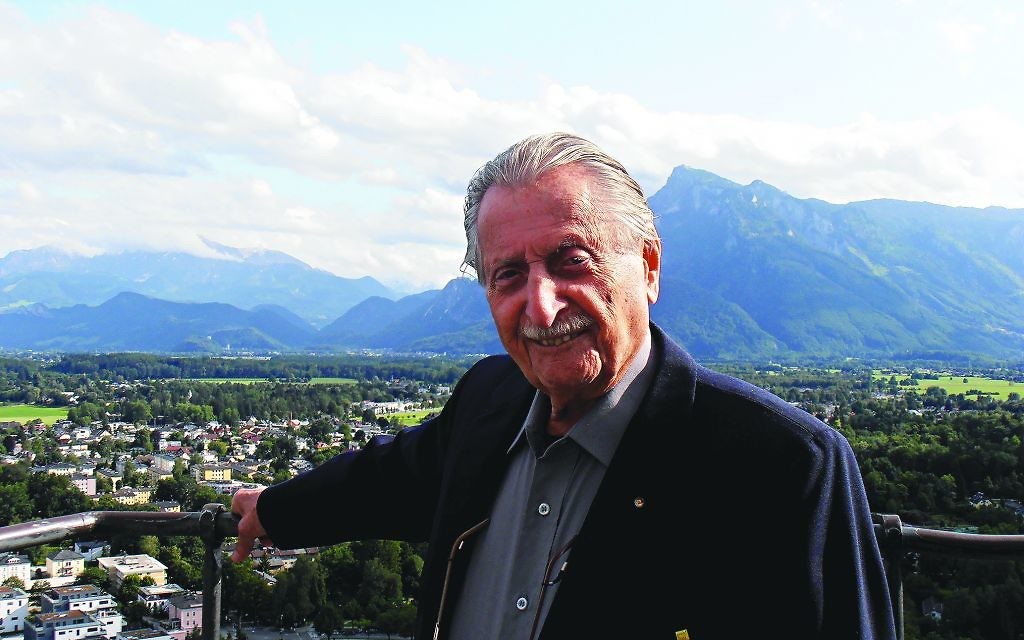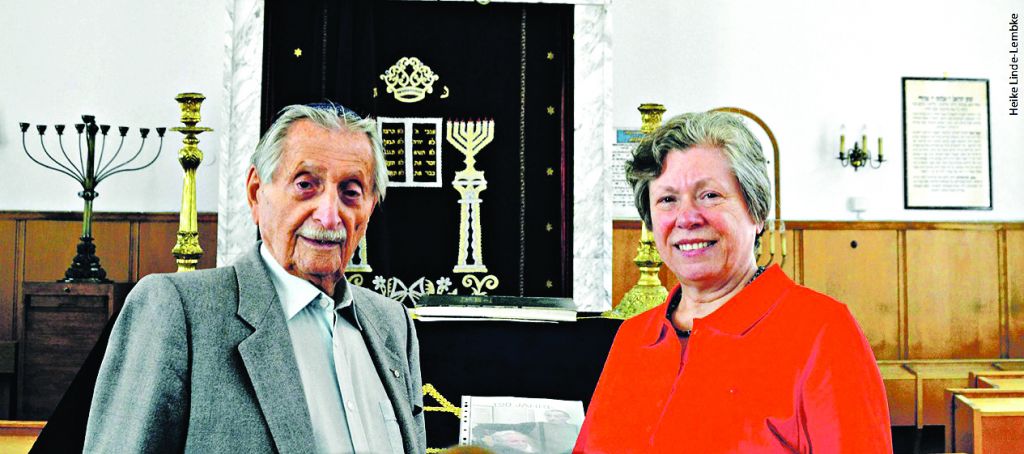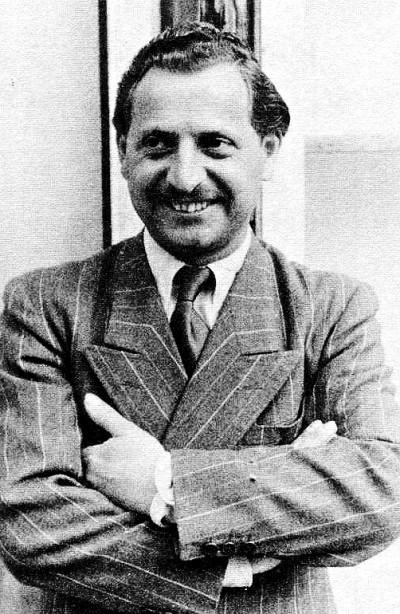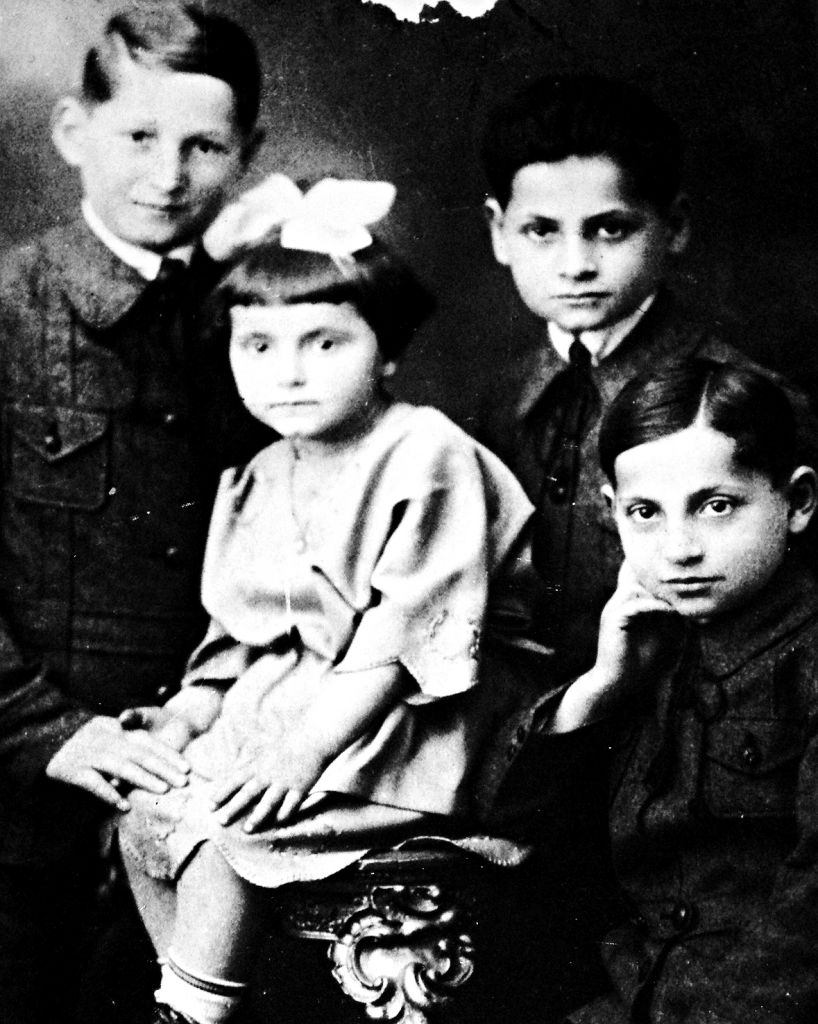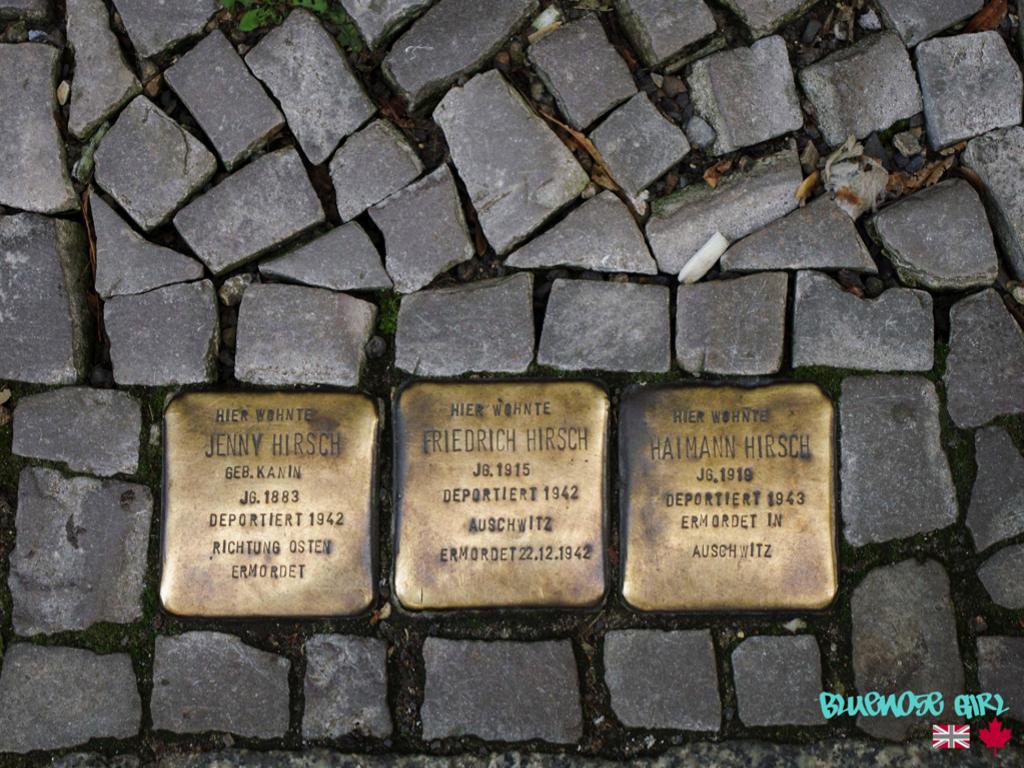Salzburg’s very Fein man
Brigit Grant speaks to 104-year-old Marko Feingold, survivor of four concentration camps and gatekeeper of the city's shul
The synagogue at 8 Lasser Strasse in Salzburg is easy to find. There is no high wall or brace of security guards signposting its location – just a low railing and pretty front garden standing between the car-lined street and a locked gate.
A few Stars of David in the windows are the only clue that this is a place of worship, but the existence of the Israelitische Kultusgemeinde (it’s official name) is a curiosity as there are less than 100 Jews in Salzburg within a population of 150,000.
No one, including the tour guides is exactly sure how many Jewish people live in the city as they choose to be anonymous, except for one – Marko Feingold.
Get The Jewish News Daily Edition by email and never miss our top stories Free Sign Up
Marko is the synagogue’s gate keeper, literally and as the holder of the keys, opening times are down to him, along with encouraging attendance and throwing down the welcome mat when tourists of the faith come looking for a religious hit .
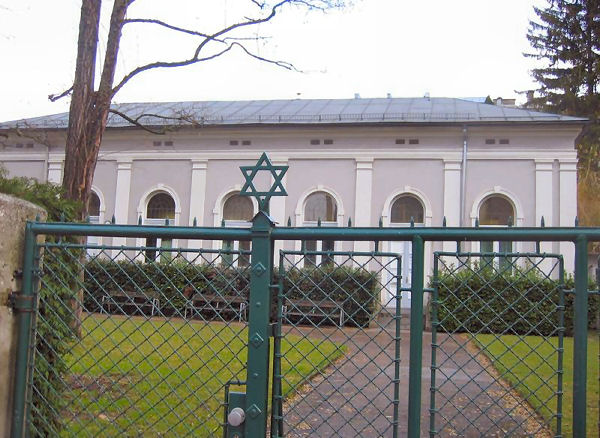
Marko otherwise known as Max will be 104 on May 28th and is one of Salzburg’s most decorated citizens with more medals and gold crosses than he can count for services to the liberation of Austria. The ‘liberation of Austria’ honour is for his ‘active resistance to the Nazi regime’, but he would be the first to admit that ‘resistance’ for a prisoner in Auschwitz amounts to simply refusing to die.
Not that he mentions this to the numerous dignitaries who repeatedly line up to shake his hand and decorate his lapel, but in quiet moments the memories of his time at four concentration camps are ever present; along with the faces of his immediate family who all lost their lives.
It is ironic that this remarkable man who has survived such personal tragedy and lived for more than a century is now a key figure in a city so tainted by the fascist past. So why did he come back?
“I was actually born and living in Vienna before the war,” says Marko who relies on his wife, Hanna to translate . “I wanted to return there after liberation, but the Americans put me on a bus with 127 former inmates from Buchenwald concentration camp and because of the zonal borders I had to get off in Salzburg and that is where I stayed.” That he chose to stay was fortuitous for the thousands of displaced people he later helped get to Israel.
“I was working in a kitchen cooking three times a day for 500 political prisoners, receiving 2,000 Schillings per month”, he explains : “ One day American officials came to me, claiming that the Jews were refusing to eat meat and wanted vegetables instead, but what started as a simple food exchange, led to me meeting Asher ‘Arthur’ Ben Natan, who later became the first Israeli ambassador in Germany, and Dr. Abba Geffenlater, both of whom were in charge of the ‘Bricha’ (Escape) from Austria and Salzburg. We got German army vehicles from the Austrian authorirties and drove 5,000 Jews over the Italian border in three months. It helped that I could also speak Italian.”
Marko learnt Italian when he moved there with his brother and best friend Ernst during Austria’s economic downturn in 1932. If they had not returned home in 1938 to extend their visas, their lives might could have been different, but they did and were arrested. On release the entire Feingold family left for Prague and then on to Poland, but an attempt to return to Prague lead to Marko and his brother being arrested again, sent to a polish prison – and eventually to the labour camp at Auschwitz.
“When I got there; they beat me and burned my hair with a candle. Auschwitz at that time was still under construction, but due to the work and the hard physical conditions, I went down to 30 Kg. After two months I was unsuitable for work, but I was sent with Ernst to the labour camp Neuengamme, in northern Germany. We got there during the winter, which was very cold and were forced to dig a channel with our bare hands between the brick factory nearby and the city of Hamburg. At this stage, I was so called “gas-able” and was about to be sent there. But the crematorium in the camp wasn’t ready yet. So I was sent with 250 other prisoners to Dachau in the south. Only 75 of us survived the trip which lasted two days and this was the last time I saw Ernst.”
Marko’s mother died in Vienna in 1936 and is buried there, but there is no grave for his father who was killed in 1939 during the German bombing of Warsaw or for his sister Rosa and brother Fritz who disappeared. The fate of his fellow traveller Ernst who had dreams of being a movie star was discovered much later as there were no documents. “And then I learned he died in a Euthanasia Institution in Bernburg in 1942.”
Ernst’s son Walter who is Marko’s nephew lives in Northwood and while claiming to be less agile than his age-defying uncle, admits that his own experiences as a child under Nazi-occupation turned him away from religious observance. This is not the case for Marko who considers every minyan achieved a miracle at the shul he has dedicated his life to. But he worries about its future.
“I have give many talks at lots of institutions, – but I do not know where young Jews will be coming from to keep this special place open,” he says with obvious sadness. “Sometimes young Jews from Israel who live in Salzburg for a few months or years come, and I think Jews from the Ukraine might arrive…we shall see.”
Though he isn’t the rabbi (there isn’t one) serving the Jewish community for 40 years has given Marko spiritual status and when he isn’t on holiday he opens the gate on Shabbat and all high holy days. He is also responsible for the placing of “stolpersteine,” the small brass memorials set into Salzburg’s pavements which commemorate Holocaust survivors by name.
Zionist founder Theodore Herzl lived in Salzburg for a time and there is a plaque to mark this which reads: “I spent some of the happiest hours of my life in Salzburg and would gladly have stayed, but as a Jew I would never have been able to gain a judicial position.” At the age of 104 Marko Feingold may have almost proved him wrong.

Thank you for helping to make Jewish News the leading source of news and opinion for the UK Jewish community. Today we're asking for your invaluable help to continue putting our community first in everything we do.
For as little as £5 a month you can help sustain the vital work we do in celebrating and standing up for Jewish life in Britain.
Jewish News holds our community together and keeps us connected. Like a synagogue, it’s where people turn to feel part of something bigger. It also proudly shows the rest of Britain the vibrancy and rich culture of modern Jewish life.
You can make a quick and easy one-off or monthly contribution of £5, £10, £20 or any other sum you’re comfortable with.
100% of your donation will help us continue celebrating our community, in all its dynamic diversity...
Engaging
Being a community platform means so much more than producing a newspaper and website. One of our proudest roles is media partnering with our invaluable charities to amplify the outstanding work they do to help us all.
Celebrating
There’s no shortage of oys in the world but Jewish News takes every opportunity to celebrate the joys too, through projects like Night of Heroes, 40 Under 40 and other compelling countdowns that make the community kvell with pride.
Pioneering
In the first collaboration between media outlets from different faiths, Jewish News worked with British Muslim TV and Church Times to produce a list of young activists leading the way on interfaith understanding.
Campaigning
Royal Mail issued a stamp honouring Holocaust hero Sir Nicholas Winton after a Jewish News campaign attracted more than 100,000 backers. Jewish Newsalso produces special editions of the paper highlighting pressing issues including mental health and Holocaust remembrance.
Easy access
In an age when news is readily accessible, Jewish News provides high-quality content free online and offline, removing any financial barriers to connecting people.
Voice of our community to wider society
The Jewish News team regularly appears on TV, radio and on the pages of the national press to comment on stories about the Jewish community. Easy access to the paper on the streets of London also means Jewish News provides an invaluable window into the community for the country at large.
We hope you agree all this is worth preserving.
-
By Brigit Grant
-
By Laurent Vaughan - Senior Associate (Bishop & Sewell Solicitors)
-
By Laurent Vaughan - Senior Associate (Bishop & Sewell Solicitors)
-
By Laurent Vaughan - Senior Associate (Bishop & Sewell Solicitors)
-
By Laurent Vaughan - Senior Associate (Bishop & Sewell Solicitors)


